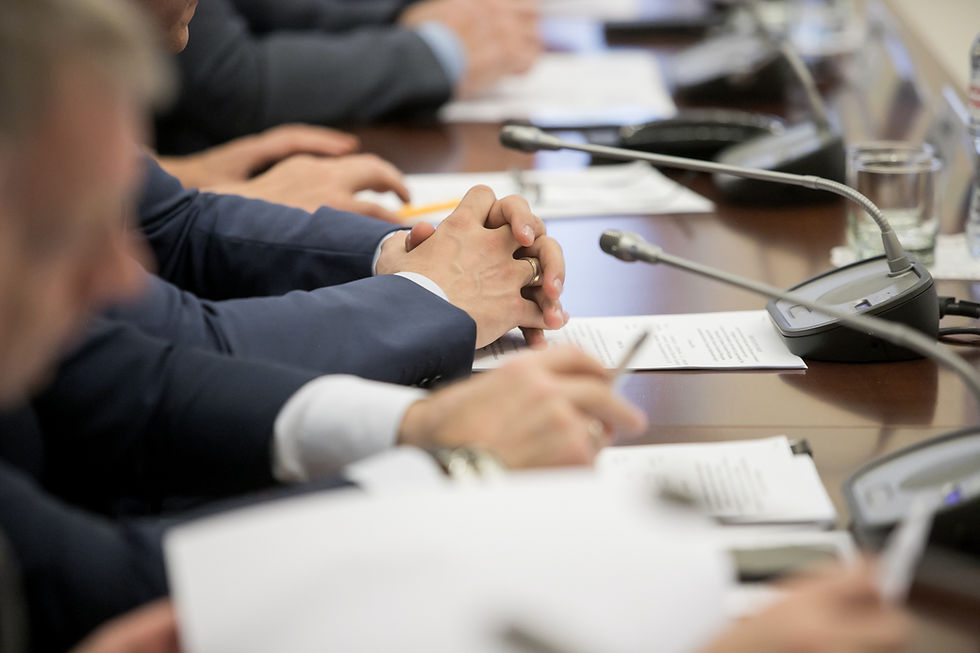Health Misinformation: A Growing Threat to Public Health
- CareTalk
- Sep 12, 2023
- 4 min read
Health misinformation, though not a recent phenomenon, has undeniably intensified in our digital age, where information flows freely and instantaneously. Over the years, we've witnessed its detrimental effects in contexts like the HIV epidemic and vaccine controversies.
However, the COVID-19 pandemic, and its persistence in today's landscape, has cast health misinformation as an even more formidable and insidious threat to public health. Health misinformation is not just about false facts or spreading rumors; it's a perilous phenomenon with real-life consequences.
In the CareTalk episode, “How to Treat Health Misinformation with Dr. Geeta Nayyar” hosts, John Driscoll and David Williams are joined by Dr. Geeta Nayyar (author, Dead Wrong: Diagnosing and Treating Healthcare’s Misinformation Illness) to discuss the impact of healthcare's misinformation problem and what steps can be taken to treat it.
What is Health Misinformation?
Health misinformation refers to the dissemination of inaccurate, misleading, or false information related to health, medical treatments, diseases, and wellness. This misinformation can be spread through various means, including social media, websites, word-of-mouth, or even traditional media outlets.
It often leads to misconceptions, misguided health decisions, and a lack of trust in evidence-based medical advice, potentially putting individuals' health at risk. Health misinformation can cover a wide range of topics, from false claims about the efficacy of certain treatments or remedies to the spread of conspiracy theories about vaccines or the origins of diseases.

The Magnitude and Consequences of Health Misinformation
The scale of healthcare misinformation is staggering. With the rise of the internet and social media, false health claims can reach millions within seconds, leading to widespread confusion and panic. The consequences of healthcare misinformation are far-reaching and have significant implications for individuals and public health systems alike.
Firstly, there is a risk to individual health. Misleading health information often convinces individuals to make decisions about their well-being based on falsehoods. For example, someone might opt for an unproven alternative treatment rather than evidence-based medical care, potentially leading to the worsening of their health conditions or, in extreme cases, even fatalities.
Furthermore, the proliferation of health misinformation erodes trust in healthcare systems, professionals, and institutions. When people begin to doubt the credibility of medical expertise, they may become hesitant to seek medical advice or vaccinations. This reluctance not only endangers their own health but also poses a threat to the health of their communities, as declining vaccination rates can lead to the resurgence of preventable diseases.
The COVID-19 pandemic exemplified the dangers of healthcare misinformation. During the pandemic, false claims about the virus's origins, treatments, and vaccines spread rapidly across various platforms. This misinformation played a hand in hindering the effectiveness of pandemic response efforts, resulting in unnecessary loss of life and prolonging the crisis. It underscored the urgent need to combat healthcare misinformation as a matter of public health significance, emphasizing the importance of accurate, evidence-based information in addressing global health challenges.
“So much of what we experience in healthcare is misinformation every day from patients taking supplements that aren't necessary, that blow out their liver, to people who don't believe in vaccines, to unfortunately people who lose their life over cancer treatments, fertility treatments. This has been a chronic, ever-present issue in healthcare since the beginning of time.” – Dr. Geeta Nayyar (CareTalk)

What Can be Done to Prevent Health Misinformation?
Preventing health misinformation requires a multi-pronged approach that involves individuals, fact-checking organizations, social media platforms, healthcare providers, and the broader community. Education plays a pivotal role in this effort. First and foremost, we must educate people on how to identify and critically evaluate health information. This includes empowering individuals to recognize common red flags for misinformation, such as sensational headlines, lack of evidence and appeals to emotions. By equipping the public with these skills, we can enhance their ability to discern reliable sources from deceptive ones.
Fact-checking organizations also play a crucial role in the battle against health misinformation. Supporting these organizations allows for the identification and correction of false or misleading health information. Their efforts help provide accurate and verified information to counteract the spread of falsehoods.
Social media platforms, as conduits for the rapid dissemination of misinformation, must be held accountable. They can contribute significantly to preventing the spread of misinformation by actively removing false or misleading content and educating their users on how to recognize and report misinformation.
Furthermore, collaboration with healthcare providers is essential. They can educate patients about the dangers of misinformation and stress the importance of seeking accurate health information from credible sources. Encouraging individuals to think critically about the health information they encounter and promoting media literacy can further empower them to make informed decisions.
Lastly, supporting research into the spread of misinformation is crucial to developing effective prevention strategies. By addressing health misinformation collectively and embracing these strategies, we can work toward creating a society that is better informed, healthier, and less susceptible to the harmful effects of misleading health information.
“Healthcare is local. So, starting with the doctor-patient relationships in every zip code, there are surgeon generals in every zip code as far as I'm concerned, those ones who are really the heroes every day. So how do you give those, those individual physicians a voice? To actually affect a population, and that's where an enterprise strategy comes in.” – Dr. Geeta Nayyar (CareTalk)
ABOUT CARETALK
CareTalk is the only healthcare podcast that tells it like it is. Join hosts John Driscoll (President U.S. Healthcare and EVP, Walgreens Boots Alliance) and David Williams (President, Health Business Group) as they provide an incisive, no B.S. view of the US healthcare industry.
FOLLOW CARETALK






Comments